YPC
Research Training on Security and Institutional Assessment
April 21, 2019
Between April 14 and 19, 2019, the Yemen Polling Center held a series of workshops at its headquarters in Taiz on approaches to assessing local security. The workshops are part of the project “Re-building Peace and Security in Yemen” implemented by YPC support of the European Union’s Instrument Contributing to Stability and Peace (ICSP).
One of the workshops brought together YPC’s fieldwork supervisors, as well as members of their teams from all of Yemen at the headquarters in Taiz. The workshop was organized in preparation of a nationwide representative survey on security perceptions, and to train the researchers on institutional assessment, and monitoring. The goal of the training is to build the capacigy of fieldwork supervisors to assess local security and collect data related to security structures.
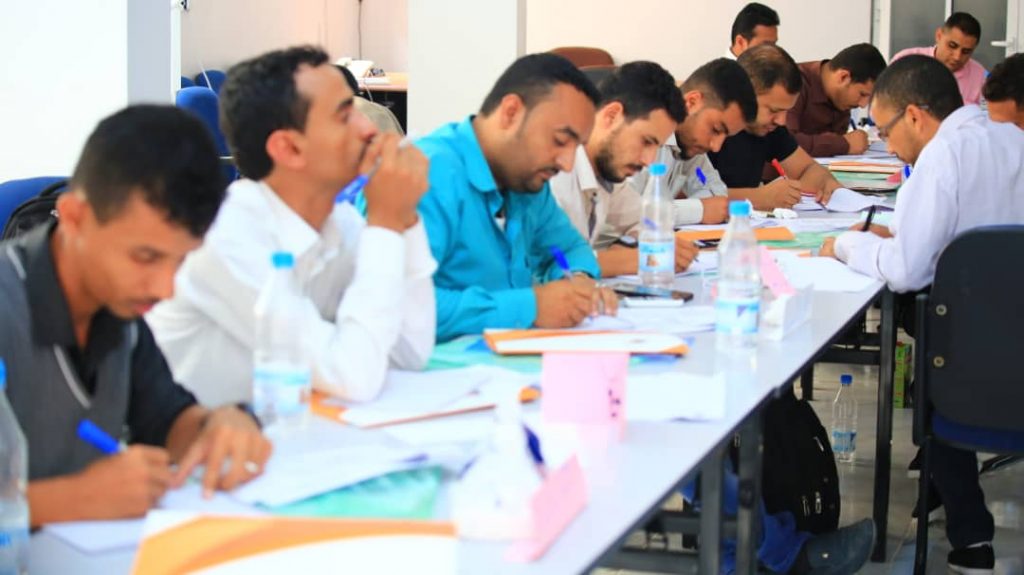
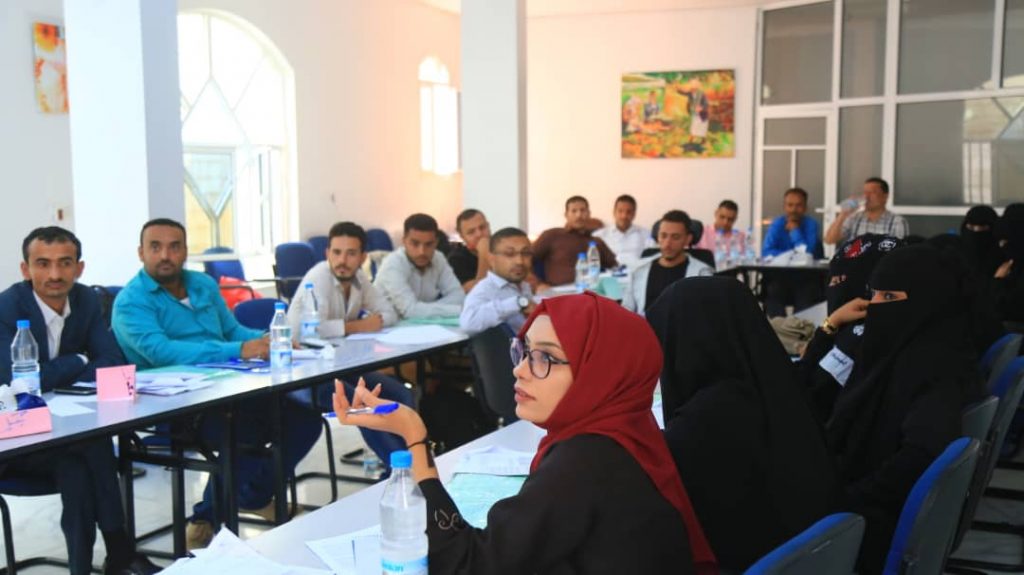
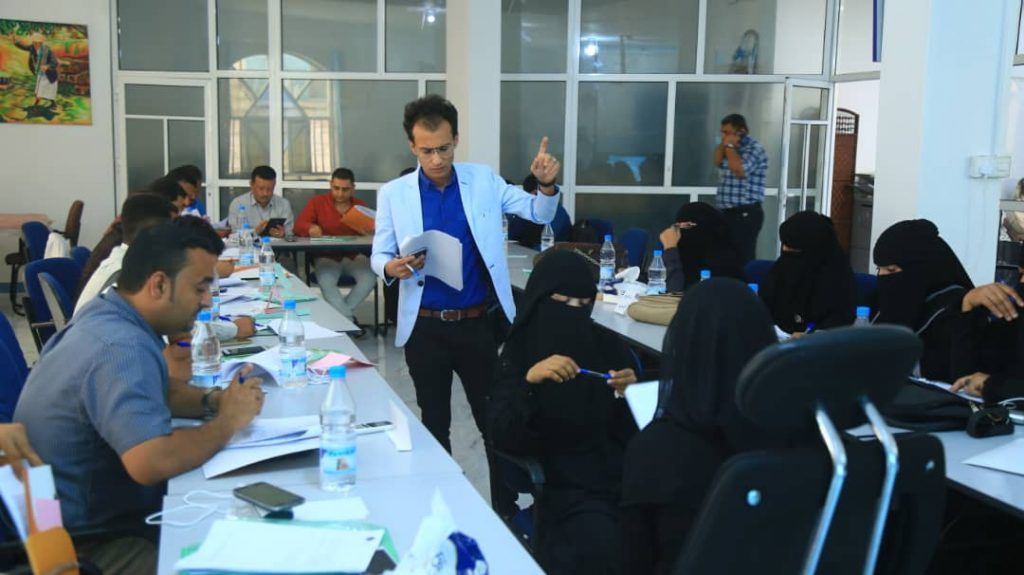
The training is to prepare the researchers to conduct high-quality research, while at the same time safeguarding their own and their team’s personal security. Special emphasis was placed on their ability to assess institutional capacities on the local level and monitor the behvaior of security providers. With the additional training on institutional assessment, the supervisors can increase their role as experts and better assess institutional capacities of state and non-state actors in the security sector.
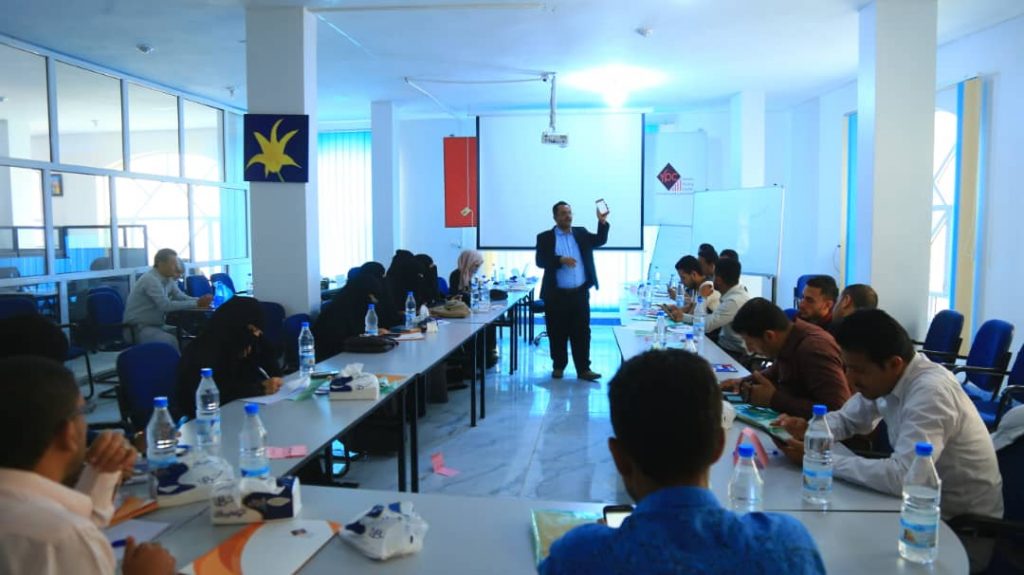
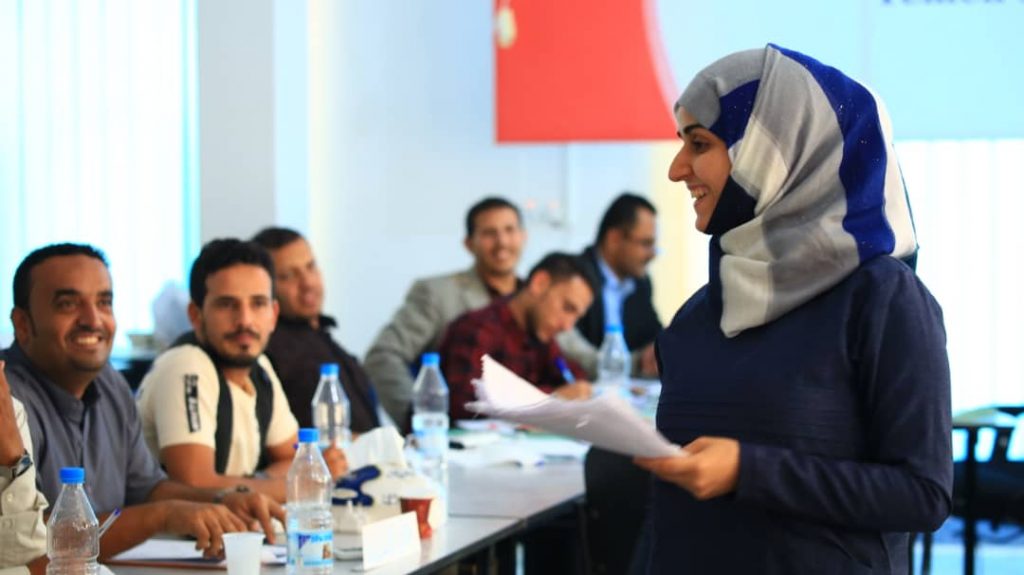
This, coupled with on-the-job-training should prepare supervisors to act as security experts of their respective governorates. Field supervisors are to consult YPC and its researchers on their work and provide their expertise to improve research outputs. On one of the workshop days, the supervisors passed on their knowledge to youth activists and together participated in training on assessing and monitoring security institutions.
Translator : N/A
Editor : N/A
Photographer : N/A
Donor : N/A
References :
[1]YPC nationwide representative survey, April–July 2019. Data cited in this paper is drawn from this survey unless otherwise indicated.
[2] UN News “Humanitarian crisis in Yemen remains the worst in the world, warns UN” Feb 2019. https://news.un.org/en/story/2019/02/1032811 (Accessed 3 March 2020).
[3] Wadhah Al-Awlaqi and Maged Al-Madhaji, Rethinking Yemen’s economy: Local governance in Yemen amid conflict and instability, July 2018. https://devchampions.org/files/Rethinking_Yemens_Economy_No2_En.pdf (Accessed 8 March 2020); Mansour Rageh, Amal Nasser, and Farea Al-Muslimi, “Yemen without a Functioning Central Bank: The Loss of Basic Economic Stabilization and Accelerating Famine,” Sana’a Center for Strategic Studies, November 2016. http://sanaacenter.org/publications/main-publications/55 (Accessed 23 May 2018).
[4]Data source: OCHA, “Humanitarian needs overview 2019: Yemen”, December 2018. https://yemen.un.org/sites/default/files/2019-08/2019_Yemen_HNO_FINAL.pdf (Accessed 11 March 2020).
[5] Final report of the Panel of Experts on Yemen, addressed to the President of the Security Council, January 2020. https://undocs.org/S/2020/70 (Accessed 11 March 2020).
[6] Mareike Transfeld, “Implementing Stockholm: The Status of Local Security Forces in al-Hodeidah,” YPC Policy Report, Yemen Polling Center, Policy Report, November 2019. http://www.yemenpolling.org/Projects-en/ICSP_EU_HodeidahReport2019November30.pdf (Accessed 16 February 2020).
[7] Mareike Transfeld and Shaima Bin Othman, “The State of the Police in Western Yemen”, YPC research debrief, Yemen Polling Center, Research Debrief, January 2020. https://www.yemenpolling.org/4325/ (Accessed 16 February 2020).
[8] Amnesty International, “Yemen: Fierce new offensive displaces tens of thousands of civilians from Hodeidah” May 2018. https://www.amnesty.org/en/latest/news/2018/05/yemen-fierce-new-offensive-displaces-tens-of-thousands-of-civilians-from-hodeidah/ (Accessed 5 March 2020).
[9] Maged Sultan, Mareike Transfeld and Kamal Muqbil, “Formalizing the Informal State and Non-State Security Providers in Government-Controlled Taiz City,” YPC Policy Report, Yemen Polling Center, July 2019. https://yemenpolling.org/advocacy/upfiles/ICSP_EU_FinalTaizReport2019July19.pdf (Accessed 16 February 2020).
[10] Nadwa al-Dawsari , “Tribal Governance And Stability In Yemen “, The Carnegie papers, Carnegie endowment (April 2012). https://carnegieendowment.org/files/yemen_tribal_governance.pdf (Accessed 5 March 2020).
[11]CIVIC, “We Did Not Know If We Would Die From Bullets Or Hunger” Civilian Harm and Local Protection Measures in Yemen “, Jan 2019, https://civiliansinconflict.org/wp-content/uploads/2020/01/YEMEN_BulletsorHunger_FINAL_PROOF.pdf (Accessed 5 March 2020).
[12] Fatima Saleh and Ahmed al-Sharjabi “Institutional Prerequisites for the STC “Coup” in Aden and Perspectives on the Jeddah Deal” , research debrief, Yemen Polling Center, Oct 2019. https://www.yemenpolling.org/institutional-prerequisites-for-the-stc-coup-in-aden-and-perspectives-on-the-jeddah-deal/ (Accessed 16 February 2020).
[13] Human Rights Watch, “Yemen: Riyadh Agreement Ignores Rights Abuses”, December 2019, https://www.hrw.org/news/2019/12/12/yemen-riyadh-agreement-ignores-rights-abuses Accessed 5 Mar 2020; Human Rights Watch, “Yemen: UAE Backs Abusive Local Forces” June 2017.
- © Copyright 2012 - 2024
- All Rights Reserved
- Yemen Policy Center
- Impressum - Legal Notice
- Privacy Policy
